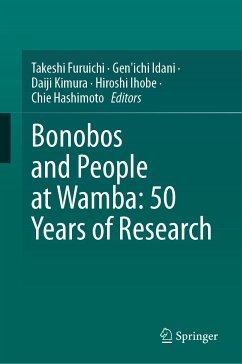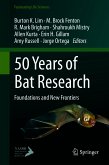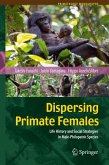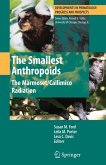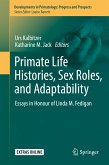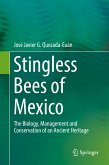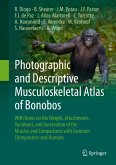This book reviews all the findings about bonobos and the local people of Wamba village in the Luo Scientific Reserve in the Democratic Republic of the Congo over the last 50 years. In 1973, Takayoshi Kano, a Japanese primatologist, traveled across a vast area of the Congo Basin with a bicycle and found Wamba village to be a promising site to start his first studies on wild bonobos. Since then, many researchers from Japan and all over the world have been working at Wamba, now the longest standing study site, to uncover various aspects of the ecology and behavior of this most recently identified great ape species. The researchers study bonobo behaviors and carry out various activities for the conservation of bonobos. They also conduct anthropological studies of local people who live with bonobos and believe them to be distant relatives from the same family, living in the forest. This book is published in commemoration of 2023 marking the 50th year of study.
The main chapters are contributed by active researchers studying bonobos and the local people at Wamba. The book also includes contributions from various eminent researchers who have carried out short-term research or have supported research at Wamba, which helps place these studies of bonobos in a broader primatological or anthropological perspective.
This book will be a useful resource for professional researchers in primatology and anthropology, as well as graduate or undergraduate students interested in these research fields.
Dieser Download kann aus rechtlichen Gründen nur mit Rechnungsadresse in A, B, BG, CY, CZ, D, DK, EW, E, FIN, F, GR, HR, H, IRL, I, LT, L, LR, M, NL, PL, P, R, S, SLO, SK ausgeliefert werden.

